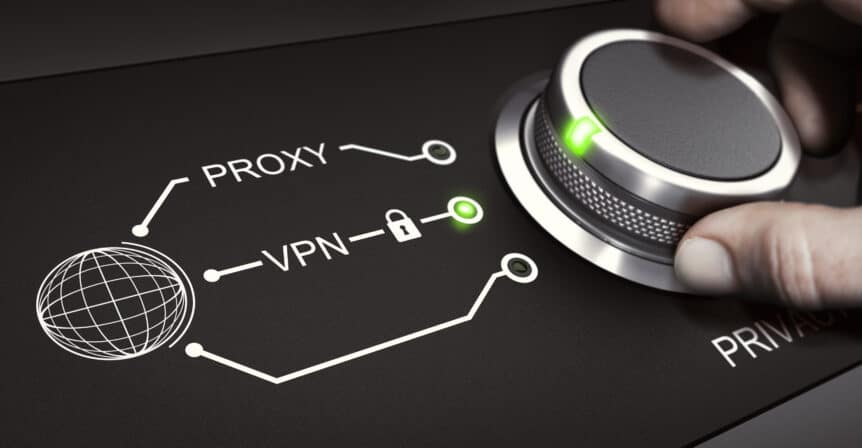by Tim Gorter, AV/IT/Wi-Fi Virtual AVIT ETO (teletechnics.com)
Most people have probably heard of a VPN, and especially the fact that a VPN can give you the ability to stream video from your home country when you are elsewhere. Yet probably what a VPN really is, is part of the dark arts.
Let’s start with defining a VPN or in full term a Virtual Private Network. Also often known as a private tunnel. So as the words defines it, it’s a Private (encrypted) tunnel between your device, be it computer, tablet or smart phone and the VPN server which is either provided by a VPN service provider or possibly your corporate company or even a small server you set up at home.
An AV & IT Technology blog by Teletechnics. Every week we cover topics concerning Technology in the Superyacht & Luxury home domain. Looking at subjects such as High end Audio & Video equipment, IPTV & Satellite TV, Streaming services and the IT support services like onboard WiFi, internet connection via VSAT, cellular and other IoT developments. We give you the insider info on Smart Hospitality services and tips and tricks to maintain systems in their prime state. Subscribe below for updates!
It creates a private network where your device becomes part of the network in the location where the VPN server is. And in most cases locks out anything on the way, so that your traffic remains private and uninspected from the local network, the local Internet service provider and all the way to the other side of this tunnel!
Now here is what you need to know, firstly you have to understand that as mentioned, if you subscribe to one of these VPN services, download the application to your device and activate it, in its basic setup you shift all your data through this tunnel. This immediately cuts you of from the local network! Meaning if you intend to connect to your network connected printer, cast to your local TV etc will no longer work, as you are in effect disconnected from the local network, your traffic being directed over the tunnel to where ever it is connected to.
So, you will need to check the setting of the VPN application to permit that local traffic is still able to flow locally and only internet traffic is guided over the tunnel.
Companies who have given you an application to connect to their local network via a VPN may configure that the tunnel only carries traffic destined to their network over the tunnel, and that all other traffic (general internet) will still go via your local internet connection.
You may also find that an VPN application is configured to work for certain programs only.
In effect you need to understand that there are different ways of configuring VPN tunnels and it has great affect on your accessibility on certain services, locally as well as out on the internet or your office.
In certain cases, you may find that a VPN is being created on the firewall, and that depending on certain rules, certain devices are “routed” via the tunnel whilst others are not.
An example being that certain media servers require you to connect to the US or UK geographical area to access the download store, in this case a VPN tunnel could be created from the firewall specifically for those media players (all of them on a single tunnel) and all other devices on the network continue without using the VPN tunnel, i.e. via the local internet access.
You may find that you have subscribed to a certain streaming service, but it only works in a certain country. As you cruise though you may not be connected to that countries network and therefore are barred from accessing the service. This can also be resolved by the use of a VPN. And the rules on the firewall can also be adjusted so that you can choose when you want the VPN to work or not.
Here are a few pro’s and con’s of a VPN for you to way up when you choose to use one.
A VPN is secure to protect your data from prying eyes, but only from its start point to the tunnel’s destination. What happens before and after is not protected by the tunnel!
A VPN does a process on your data and routes it to a specific location. This slows the connection, reduces the full bandwidth available and you may find that your internet connection will not be as responsive when using a VPN.
A VPN makes you more anonymous on the network as your final destination will not be able to see where you come from or who you are, EXCEPT if you identify yourself.. by being logged into a website, facebook or google account tracking etc…
A VPN makes things more complex and as the above should have identified to you, can cause pitfalls that has you pulling your hair!
Ah, and then of course most streaming services are not very happy of you using a VPN to watch their services outside of the permitted Geo-graphical domain. As such they watch carefully the VPN servers provided by VPN providers and block access from those IP addresses. This includes the larger datacentres that might be used by the likes of Amazon Web Services etc. And as such a VPN service you contracted today may not work tomorrow for this purpose! So choose the setup carefully depending on what you are trying to achieve.
This article was written by Tim Gorter, Virtual AVIT ETO, www.teletechnics.com. I provide support and training to crew assigned to look after their AV & IT system onboard. Making sure you understand how it works, and that you get the best out of it. Call for an AV & IT health check, more on teletechnics.com


